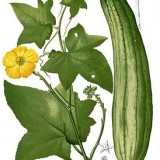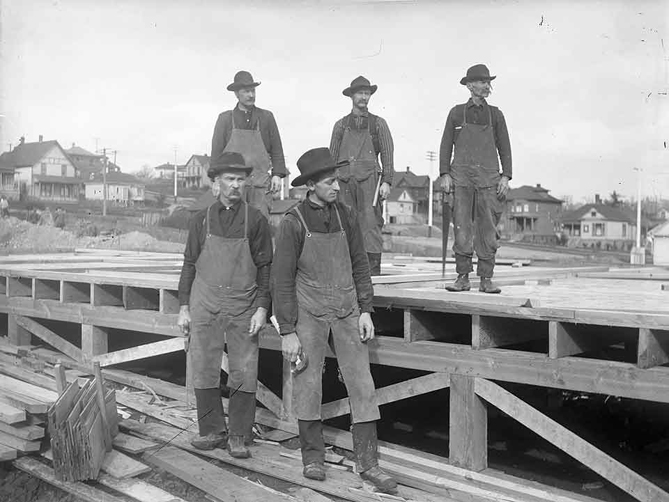
On episode 34 Kelly and Erik discuss their experience decluttering the house using the methods of Marie Kondo. During the discussion we mention:
- Life at Home in the Twenty-First Century: 32 Families Open Their Doors
- Center on Everyday Lives of Families
- Tokyo: A Certain Style
(a book that shows cluttered Japanese apartments)
- The Life-Changing Magic of Tidying Up: The Japanese Art of Decluttering and Organizing
by Marie Kondo
- Paperbackswap.com
- Bookcrossing.com
- Project Gutenberg
- Sony Reader
- Kindle Paperwhite
- Little Free Library Movement
- Selling books at Powell’s and The Last Bookstore
- Konmari t-shirt folding method
If you want to leave a question for the Root Simple Podcast please call (213) 537-2591 or send an email to [email protected]. You can subscribe to our podcast in the iTunes store and on Stitcher. The theme music is by Dr. Frankenstein. Additional music by Rho. A downloadable version of this podcast is here.






Have you considered writing a book about “tidying” for homesteaders/DIYers/makers? Seems like there’s a lot of interest from your readers on the topic, and how many other books in that niche are out there? Certainly some of the issues are universal, but as you’ve discussed, some are quite different when you’re mainly a consumer and not a producer. You could emphasize purging vs. organizing, options for donating vs. trashing, and realistic criteria for supplies management in a homesteading lifestyle.
Maybe an e-book would be the way to go as not to contribute to folk’s existing clutter problems 🙂 Just a thought.
That’s a really good idea. Now, if only I knew the answer to this problem, I could write that book! But funny you should bring this up, because I decided today that the next decluttering post will be about special DIYer problems with clutter– my current theories, which are unsupported.
Loved this podcast! I started getting rid of clutter after I read Clutter’s Last Stand and continued when I read It’s All Too Much. I have read Mari Kondo’ book and she does say somewhere in it that it is a 6 month process.(!) Mine has been much longer; in fact several years so I hope this new book will help me come to terms with my stuff and why it never gets down to that simple, minimal amount that I see in the back of my mind. I agree that thanking the item before letting it go has some kind of therapy to it. Before I had the same problems that you expressed in your blog…family stuff, worth money (?), represents a past good feeling that is no longer there, will I need it when the world shuts down (?) etc. Or for me, “can I use this for something else?” Before I was always ‘circling the wagons’ picking off things to get rid of. Hopefully this new method will clear it all up within the next 6 months.
More places to sell books (and to buy used, ahem)are Half.com (part of eBay) and Abe.com. I have sold on Amazon and Half but not on Abe though it is a great place to find books from all over. Most of the time I just take boxes to the Friends of the Library for their book sales.
Please continue to post your thoughts about your decluttering. I am trying not to become burned out and am finding strength in your posts. I hope I will be done by June! Good luck to you!
Great post and discussion. Just found this podcast and seems like an interesting endeavor all around! Thing is, do you guys bicker this much every episode…? I have such a large and rambunctious family I pretty much run the other direction if I hear disagreements, even if it’s in good fun. Either way, great work.
Sorry about that–we don’t bicker in every episode. Also, we forget that in audio form you can’t see our expressions and see that we’re actually having a good time.
You talked about an app where you can easily sell books on Amazon. Is that the main Amazon app or something else?
Thanks for your podcast. The two of you joined me in the garden while I was weeding during unseasonably warm Seattle weather. There were a couple of comments I’d like to make.
I’ve been decluttering too, and getting a lot of very good use out of my local Buy Nothing facebook group. They aren’t everywhere, but I was so surprised at the items people gleefully wanted to take off my hands. It also has given me great pleasure to wrap up the item, and send it off into the world to be loved by someone else. This works really well with clothes, kitchenware, and books.
You mentioned tossing things that were too worn to give away. It might be looking into. My local utility company sent out a list of local companies willing to take fabric scraps, mateless socks, and other unusable clothes. They turn these into carpet pads and such.
Oh! A third thing. I found a handy plugin for Chrome that plugs your library directly into an amazon book page. A google search for “chrome library extension” brings you to the site. I have used this. It doesn’t always tell me if the ebooks are in stock locally, but it will tell you that there are “2 copies at your library” directly on the amazon page.
Thanks for introducing me to the Kon-Mari method:I got her book out of the library and started eagerly. However, I’m glad that I have your commentary to balance the book not least as I’m very uncomfortable with her boasting of so many rubbish bags to be hauled to the landfill. Also to be following you in real time helps keep the hugeness of the project in perspective. Just because it only took a couple days to read the book doesn’t mean I can Kon-Mari my whole house in a couple of weeks.
I easily purged my clothing and am so happy to now only have clothes I love and to be able to keep them tidy. It seems both a miracle, and obvious, that having less stuff and therefore more storage space makes for a tidy wardrobe. As a keen seamstress I’m excited to have identified some gaps in my wardrobe that need filling- I feel much more strategic about my sewing plans now. Within a week of the clothing tidy I had mended all the in-season clothes that needed it and remodelled three outgrown but beloved garments into one new one that I adore and wear constantly.
My community has ‘Frock Swaps’ quarterly to exchange clothing and I have a big suitcase and rubbish bag full to start off the next one. The unwearable clothes went into my ‘pouf-stuffing’ bag- whenever it’s full I like to sew big floor cushions which I stuff with all my sewing scraps.
Books will take a while. This weekend I went through all the ‘real’ books which was exhausting- three boxes to take to the second hand shop to sell, one to give away to Bookcrossing or charity and two boxes of expensive specialty books (esoteric Judaica and book arts) that I want to offer to their local communities of interest in the hopes of getting a decent price. I’m going to put a list of books and contact details in relevant newsletters and hope to find buyers directly.
Next weekend I will go through the small books- booklets, handmade books, zines, magazines, journals and I imagine most of the purged will just be trashed as I don’t envisage a market for them. I might offer them on Freecycle first, because it never ceased to amaze me what people will take away for free (i.e.umpteen assorted clothes hangers after my clothing purge).
I’m daunted by the idea komono, and would love to read a blog post where you share more detail what you are learning about applying the Kon-Mari method to komono categories eg kitchen, garden shed, craft and DIY supplies etc.
After reading all your posts and listening to the podcast, I decided to pick up a copy – which I did by bringing in some books to the local bookstore for trade credit. There’s something nicely circular about that. 😉
My biggest concern is the “does it spark joy” thing. While I love that as a criteria, I’m working through the yearly round of winter depression, and not much of anything sparks joy at the moment. Is it a guideline that works for people with depression? I’m going to read it and see what happens – the idea that hoarding can be traced to either being tied to the past or being afraid of the future was intriguing.
As a working artist, getting rid of supplies and tools is probably not going to happen. Hopefully, making room by letting other things go will allow them to breathe, as Kon-Marie might say, and maybe lead to greater creative flourishing.
Thanks so much for sharing your progress with all of it!
There’s no doubt that decluttering can bring up some deep emotional issues. Objects tie us, of course, to our past. And the past can hold trauma. This was the case for a friend of ours who just went though the Konmari method. Kelly plans on addressing this in a post that will probably go up next week. Ultimately, I think, getting rid of stuff frees us.
And, I have to say, I’ve noticed that artists can have a particular problem with both accumulating and getting rid of stuff. There’s another post to write . . .
Thanks for this podcast! I am in Germany and found your site because I was specifically looking for some commentary on Marie Kondo’s book. A great discussion and I nodded in agreement at various stages. And, having found you, I shall continue to follow you as you have some really interesting things!
Thanks! Glad you found us!